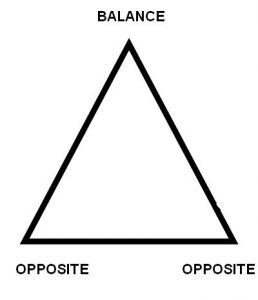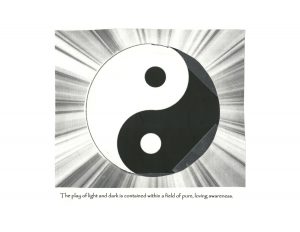This was a blog I wrote for Reno Friends Meeting (https://www.renofriends.org/) for the month of January.
Be content with what you have; rejoice in the way things are. When you realize there is nothing lacking, the whole world belongs to you. Lao Tzu
Lately I’ve been reflecting on contentment, curious about why I have been feeling increasingly content. January is usually when we resolve to change for the better, not a time to be content. I think what has changed for me this year is that I’m slowly dropping a lifelong habit of perfectionism; perfectionism and contentment do not make good bedfellows. In my practices of Qigong, Tai Chi, yoga and meditation, I’ve been focusing on being present and in complete acceptance with what is happening in the moment, what I can and cannot do. Perhaps after many years of practice, something is sinking in more deeply. Maybe it is part of aging and accepting of reality. Probably, it’s a combination of practices and life experience. There are blessings in getting older!
I’ve stopped trying to always be and do more. I recall watching a sci-fi film a few years back called “Cloud Atlas”. In this dystopian film, more is the disease that brings down civilization. Our culture encourages us to be dissatisfied, to do more, be more, buy more, promising that “more” will make us happy and loveable. I think if we keep following this path, we could end up in a Cloud Atlas future. What is enough?
I was inspired to delve more deeply into contentment by doing some reading on what various spiritual paths have to say. The Tao te Ching by Lao Tzu is filled with poems describing “The Way” or “The Tao”. It is one of my favorite spiritual texts to read before I settle into meditation. Lao Tzu often speaks of being content and accepting reality as it is. I chose the lead quote from this text. My favorite translation is by Stephen Mitchell.
Yoga from the Hindu tradition has many practices, like Santosha, to help one embody contentment, both on the mat and in the world. Santosha is about cultivating a feeling of contentment that is not dependent on the external world. Here is a beautiful article on Santosha: https://www.awakeningself.com/writing/making-peace-with-contentment-santosha/.
The Bible is filled with many references to contentment, like this quote: Not that I am speaking of being in need, for I have learned in whatever situation I am to be content. I know how to be brought low, and I know how to abound. In any and every circumstance I have learned the secret of facing plenty and hunger, abundance and need. Phillippians 4:11-12. This blog post is filled with Bible quotes on contentment: https://www.biblelyfe.com/blog/bible-verses-about-contentment.
Buddha was another big proponent of contentment. He said: Contentment is the greatest wealth. Buddha believed that resisting reality caused suffering and that only by accepting our experience in each moment could we find peace. Buddhism is actually a very sophisticated mind re-training system. Here is a good article/video on contentment by Phakchok Rinpoche: https://samyeinstitute.org/paths/holistic-living/contentment-and-mind/.
Islam also promotes contentment, like this quote from Imam Ali (a): There is no treasure richer than contentment (MH, H.16850). Here is a quick read on contentment from the Islamic perspective: https://academyofislam.com/reflection-no-325-on-q-20131-contentment/.
Even western therapists blog on the virtues of contentment: https://www.goodtherapy.org/blog/the-essence-of-contentment-how-acceptance-promotes-happiness-0911194.
As I have explored these writings, it also occurred to me that contentment is a fruit of many of our Quaker testimonies. The felt experience of Simplicity is contentment. When we are content, we experience inner Peace. Integrity-telling the truth and living in alignment with our values-leads to contentment. Being part of a Community and loving and accepting ourselves and each other as we are, fosters contentment. When we see ourselves as Equal to others, neither better nor less than, we are content. Good Stewardship encourages us to live simply, be content with what we have, and tend to the Earth.
Looking back, I realize I’ve been soaking in teachings and doing practices that lead to contentment for a long time. I wonder why it has taken me so long to feel content? I suspect it goes back to perfectionism, to never feeling I’ve done enough or am enough. I am grateful to our dear Swami who shared this message during the Silence recently: God loves you just as you are. If you cannot love yourself as you are, then you know where your work is. That message hit me right in the heart. What if our biggest work is to love ourselves just as we are? This doesn’t mean that we become lazy and complacent. Rather, when we love ourselves and others as we are, we can let love lead us in our responses to unskillfulness, suffering and injustice. We can be content just as we are and trust we will be guided to the next right step. We are all learning as we go, and we are doing the best we can given where we are in the moment.
Queries:
What does contentment mean to you?
How do you foster contentment in your life?
When do you feel discontent?
If you feel discontent, how do you restore contentment?
How is contentment related to gratitude?

